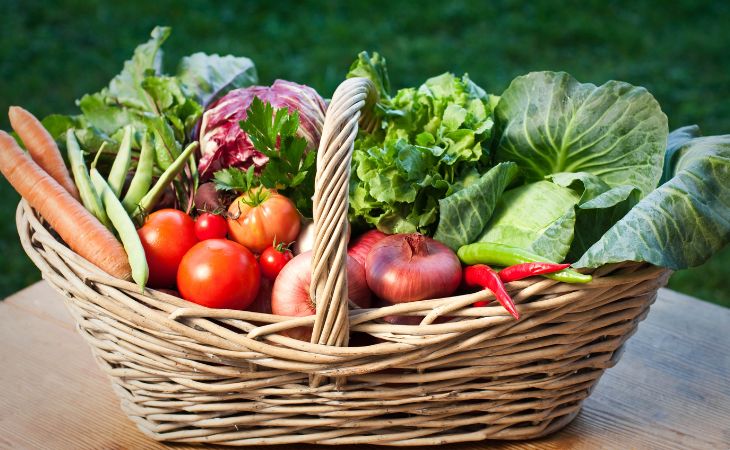To examine the impact of fruits and vegetables on sleep quality, the
researchers recruited 34 participants aged 20-49, most of whom were men
(4 out of every 5). All reported sleeping 7-9 hours per night and eating
3 meals a day. The study was conducted over 201 days, during which the
researchers analyzed data related to the participants’ sleep alongside
their daily diet. Each participant wore a smart bracelet that tracked
their sleep data and recorded everything they ate and drank each day in
an app.
The researchers analyzed the effects of
several variables:
Macronutrients: carbohydrates, fiber, proteins, and fats.
Micronutrients: vitamins and minerals.
Food groups: meat, dairy products, fruits, vegetables, nuts, and
grains.
What did the study results show?
The results showed that on days when participants consumed more fruits,
vegetables, and carbohydrates, they slept better, with good sleep
defined as uninterrupted sleep. However, not all carbohydrates had the
same effect. For example, carbohydrates like added sugars found in white
bread did not positively affect sleep. It was complex carbohydrates
combined with fiber and magnesium that contributed to uninterrupted
sleep. On the other hand, after days when participants consumed red meat
and processed meat, there was a higher likelihood that they would wake
up during the night.
What is the connection between complex
carbohydrates and uninterrupted sleep?

Dr. Sudha Tallavajhula, a sleep neurologist from Texas who was not
involved in the study, states that these findings align with previous
studies that showed the impact of complex carbohydrates found in fruits
and vegetables on sleep. She says their contribution to uninterrupted
sleep is due to their ability to help the body better absorb tryptophan.
This amino acid is crucial for neurochemical processes, including the
production of melatonin—the hormone that signals to the body that it’s
time to sleep.
What else in fruits and vegetables helps
with sleep?
Previous studies have found that high fiber intake (which is essentially
a type of carbohydrate that the body cannot break down into sugar) is
linked to uninterrupted sleep. For example, a study published in 2016
found that fiber intake promotes slow brain waves that occur during
deep, non-dreaming sleep stages. Fruits and vegetables contain a lot of
fiber, so it’s not surprising that this study also found them to promote
better sleep.
Additionally, many natural foods contain magnesium, which has numerous
health benefits, and it can affect the nervous system and sleep hormones
in a way that reduces stress, facilitates falling asleep, and
contributes to more uninterrupted sleep. Magnesium can be found in
significant amounts in leafy green vegetables, grains, nuts, and seeds.
How to incorporate more fruits and
vegetables into your diet for uninterrupted sleep?
Sharon Collison, a registered dietitian from the University of Delaware
specializing in therapeutic nutrition and not involved in the study,
says the study’s findings align exactly with what she encounters in her
work: “I’ve found that people with unstable sleep also have
unpredictable eating patterns, and improving eating habits helps improve
sleep.”
To consume more vegetables and fruits
during the day and achieve uninterrupted sleep, Sharon recommends
filling half your plate with fruits and/or vegetables at every meal. A
quarter of the plate should be dedicated to whole grains, such as brown
rice, whole wheat bread, or oatmeal, and the rest to proteins of your
choice. If this sounds too challenging, Sharon suggests starting with
habits that will help you eat more fruits and vegetables, such as eating
a fruit on the way to work and on the way home. “I tell my patients
that every meal and every snack should include a fruit or vegetable with
it,” she adds.
In summary
the issue, check whether you’re eating enough fruits and vegetables—it
may be the root of the problem. Although this study was conducted with a
small number of participants, it shows results consistent with those
found in previous studies. Try to create habits that will help you eat
more fruits and vegetables, and check if you sleep better at night. It’s
not hard to try, and the results will be clear to you very quickly.










